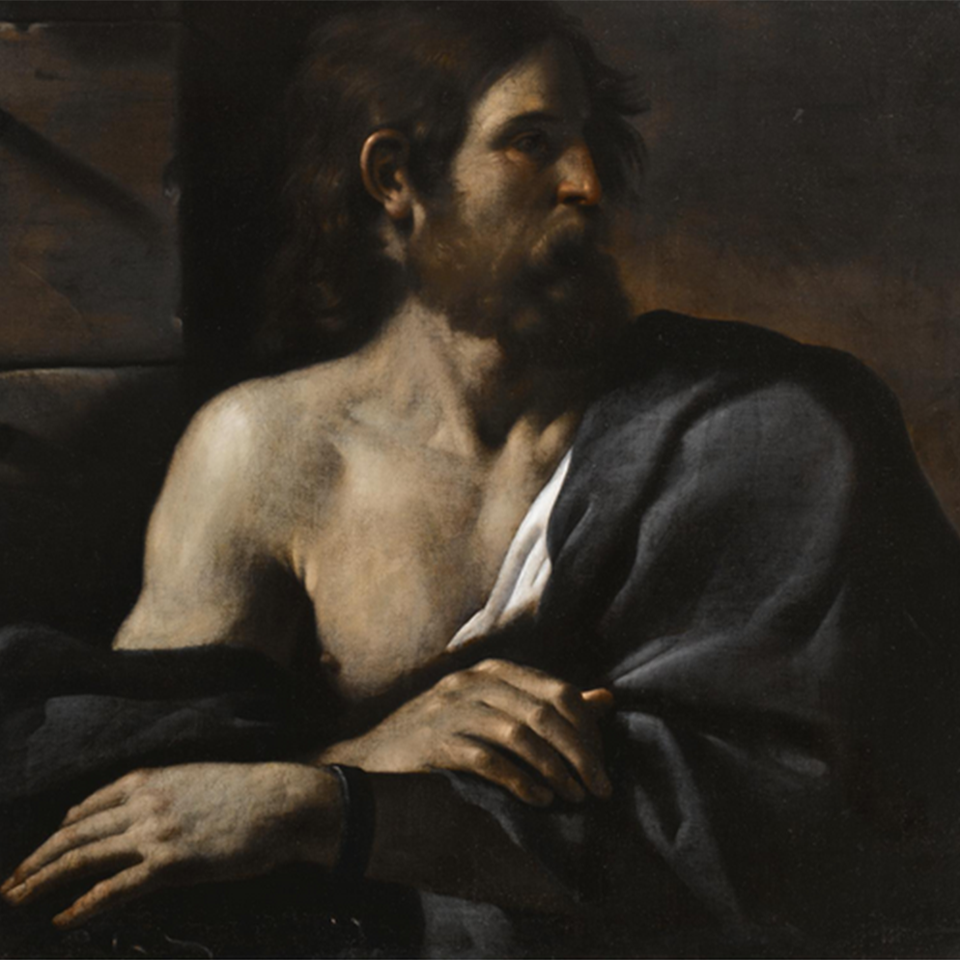When Jesus heard that John had been arrested,
he withdrew to Galilee.
He left Nazareth and went to live in Capernaum by the sea,
in the region of Zebulun and Naphtali,
that what had been said through Isaiah the prophet
might be fulfilled:
Land of Zebulun and land of Naphtali,
the way to the sea, beyond the Jordan,
Galilee of the Gentiles,
the people who sit in darkness have seen a great light,
on those dwelling in a land overshadowed by death
light has arisen.
From that time on, Jesus began to preach and say,
“Repent, for the kingdom of heaven is at hand.” (Matt. 4:12-17)
John has been arrested. The voice crying in the wilderness will soon be raised into eternity.
John the Baptist was descended from a priestly line, but as God’s messenger, we did not see him in the temple observing the rituals as did his father, Zechariah. He was not dressed in priestly garments, nor was he taking his turn at offering incense and sacrifice.
Rather, we saw him in the desert, where he had moved away from every physical manifestation of religion beyond water and the word, and his own stripped-down humanity.
John, the priest, was also a prophet and his preaching was blunt, unyielding, and fiercely truthful, so much so that it was eventually the death of him, because the truth is a dangerous contraband to the worldly, the trendy, and the ambitious. A glance at history reminds us that a great deal of humanity—thrown into chaos on the force of the serpent’s lie—has tried to silence truth one way or another, ever since Eden.
John’s story can be a particularly useful sort of lectio if one is disturbed by the current social trend toward silencing (or “canceling”) those who will not simply hit a refresh button and update their takes on moral and even on biological issues in order to serve the zeitgeist, or to just “go along to get along.”
John, for instance, was already a teller of inconvenient truths, willing to call the Pharisees and Sadducees who observed his baptismal gatherings a “brood of vipers” (Matt. 3:7). But what finally got him thrown into jail was his forthright speech against the marriage of Herod Antipas to Herodias, the former wife of Herod’s brother, which he called “unlawful.”
His words were fierce. They sound harsh to our modern ears (“Repent, for the Kingdom of God is at hand” (Matt. 3:2) tracks poorly with “As long as you’re a good person . . .”), but John’s priesthood was fierce as well, because it was a radical rejection not of temple worship but of what that worship had become—so perfunctory, corrupt, political, and spiritually and economically suspect that even his father Zechariah (as we see in Luke 1:18) had succumbed to a spiritual ennui that left him questioning an angel, and poorly.
Stripped down to a camel’s hair robe, feeding on locusts and honey, John still retained his priesthood. He demonstrated as much in the authority of his preaching, in his urgent call for a fundamental return to God, unmoored of extraneous manmade weights and unencumbered by the weeds of sin that did thrive in such a socially and religiously suspect environment.
In the end, John preached, all there will be is God, and us, and thus our self-consideration should be—as he exemplifies—lean and sparse, our lives uncluttered in order to sharpen our focus on heaven. Seek the Lord, See the Lord, Be in Awe of the Lord, Obey the Lord, was John’s (paraphrased) message, because everything is about to change. The Lamb of God, living among them, would make it so.
This was not, as some might be tempted to argue, a full-on rejection of what we call “organized religion,” and John never said as much. How could he when the Lamb he was announcing was himself a rabbi and defender of the temple who cast out the moneychangers who had defiled it — an observant Jew who told those he healed to show themselves to the priests, and do as Moses prescribed in the law?
But John had been telling the world not to become so hung up on the physical, on the externals—the exacting rituals and postures, and the impressive robes—as to lose sight of the God to whom it was and still is directed; not to be so caught up in the processes as to lose sight of their purposes, but to see all of the ritual, all of the observed traditions, as a means to an end. The transitional tools that assist in bringing about the great event—the kiss between heaven and earth in which the veil is thinned out, penetrated, and ordinary bread is made Supersubstianial and Holy—are all pointless in and of themselves, unless they are pointing us squarely to God.
Jesus said much the same, but very differently. He too said, Seek the Lord, See the Lord, Be in Awe of the Lord, Obey the Lord. But he went beyond John, adding, Love the Lord, Ephphatha! Be opened.
Because we must be opened in order to permit the Lord we claim to love, to love us back.
